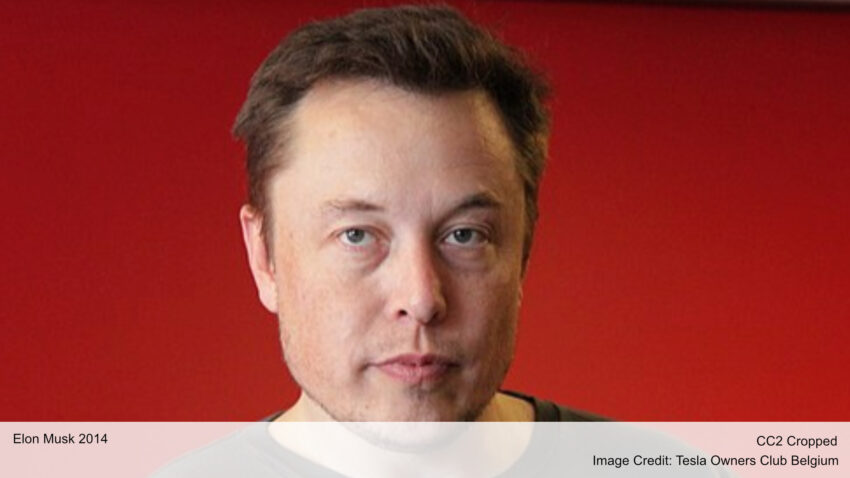Elon Musk, the influential tech billionaire, has stirred controversy with a recent post on X, the social media platform he owns, advocating for the abolition of the Consumer Financial Protection Bureau (CFPB). Musk, who has been appointed to lead the “Department of Government Efficiency” in the incoming Trump administration, expressed his views in a succinct post: “Delete CFPB.” The CFPB, established after the 2008 financial crisis, serves as a federal watchdog to protect consumers from exploitative financial practices. Musk perceives the agency as a redundant regulatory body contributing to bureaucratic excess in Washington.
- Musk’s Call for Action: Elon Musk, now appointed to lead the “Department of Government Efficiency,” has called for dismantling the Consumer Financial Protection Bureau (CFPB), arguing it is a redundant regulatory agency.
- CFPB’s Role and Impact: Established after the 2008 financial crisis, the CFPB has delivered over $20 billion in consumer relief and handled millions of complaints, serving as a watchdog against exploitative financial practices.
- Conservative Support for Abolition: Musk’s stance aligns with conservative frameworks like Project 2025, which seeks to streamline federal agencies, citing regulatory overreach and constitutional concerns.
- Controversy and Criticism: Critics, including federal unions and consumer advocates, argue that eliminating the CFPB could harm consumer protections and destabilize financial oversight.
Advocates for consumer protections emphasize that the Consumer Financial Protection Bureau (CFPB) is an essential agency that ensures accountability and fairness in the financial system. Created in the aftermath of the 2008 financial crisis, the CFPB was designed to protect ordinary Americans from exploitative practices like predatory lending, deceptive credit terms, and unfair debt collection. Its dissolution, as proposed by Elon Musk and other conservatives, would leave consumers vulnerable to unchecked abuses by financial institutions. Advocates on the left argue that dismantling the CFPB risks erasing hard-fought protections that prevent another economic meltdown driven by corporate greed and irresponsible financial practices.
Additionally, critics of Musk’s position point to the CFPB’s tangible successes, such as returning over $20 billion to consumers and holding companies accountable for misconduct. They argue that targeting the agency is less about efficiency and more about favoring corporate interests over public welfare. Dismantling the CFPB could erode trust in the financial system and exacerbate economic inequality by removing critical safeguards for marginalized communities disproportionately affected by exploitative financial products. The left views Musk’s proposal as part of a broader conservative effort to weaken government oversight, undermining the very mechanisms designed to promote transparency and fairness in the economy.
This move follows comments by venture capitalist Marc Andreessen, a prominent Trump supporter, who criticized the CFPB’s role in regulating financial institutions. Andreessen’s criticism is not without irony, as his firm had invested in LendUp, a payday lender shut down by the CFPB for deceptive practices. The agency’s director, Rohit Chopra, stated that LendUp was closed for misleading and defrauding consumers.
Musk’s call to dismantle the CFPB aligns with broader plans under the Trump administration to reduce federal spending and streamline government functions. He and fellow entrepreneur Vivek Ramaswamy have outlined a vision for significant reductions in regulations and federal workforce. They intend to leverage recent Supreme Court rulings that limit federal regulatory authority to achieve these goals. Their plan includes targeting over $500 billion in unauthorized spending, auditing government contracts, and identifying necessary staffing levels for federal agencies.
Critics question whether Musk and Ramaswamy can implement these cuts without encountering legislative resistance. Many argue that reducing bureaucracy is a complex and time-intensive task. However, Musk’s proposal to eliminate the CFPB signals a serious intent to overhaul government structures. The CFPB was created to prevent another financial disaster like the 2008 crash, caused by risky lending to subprime borrowers. Since its inception, the agency has secured over $20 billion in consumer relief and processed millions of complaints.
The idea of abolishing the CFPB has gained traction among conservative circles. Project 2025, a conservative policy framework, has also advocated for its dissolution, labeling the agency as “unconstitutional.” Musk’s recent posts targeting government employees and positions have raised concerns among federal employee unions. Everett Kelley, president of the American Federation of Government Employees, argues that Musk’s tactics are meant to instill fear among federal workers.
The debate over the CFPB’s future comes amid broader discussions about government efficiency and spending. Musk’s latest comments add fuel to the ongoing discourse about the role of federal agencies and their impact on the economy. As the Trump administration prepares to take office, the potential elimination of the CFPB and other regulatory bodies remains a contentious issue.
Consumer Financial Protection Bureau
The Consumer Financial Protection Bureau (CFPB) is a U.S. government agency dedicated to ensuring fair treatment for consumers by banks, lenders, and other financial institutions. Established in 2010 under the Dodd-Frank Wall Street Reform and Consumer Protection Act, the CFPB emerged in response to the 2008 financial crisis. Its mission is to implement and enforce federal consumer financial laws, aiming to make financial markets fair, transparent, and competitive.
Key Functions of the CFPB
The CFPB’s responsibilities include:
- Rulemaking: Developing regulations to protect consumers in the financial marketplace.
- Supervision: Overseeing financial institutions to ensure compliance with consumer protection laws.
- Enforcement: Taking legal action against entities that violate consumer financial laws.
- Consumer Education: Providing resources to help consumers make informed financial decisions.
- Complaint Handling: Receiving and addressing consumer complaints related to financial products and services.
Recent Developments
In November 2024, the CFPB finalized a rule to extend bank-like supervision to major digital payment providers, including Apple Pay, Google Wallet, PayPal, and Cash App. This regulation targets services processing over 50 million transactions annually, ensuring they adhere to federal laws concerning privacy, fraud prevention, and regulatory compliance. CFPB Director Rohit Chopra emphasized that this move aims to protect consumer privacy, guard against fraud, and prevent illegal account closures.

